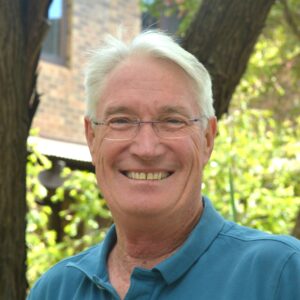South West NRM is set to spring into a new phase of delivering positive environmental outcomes across the region with the appointment of a new Board Chair for a two-year term.
Agricultural scientist and research management expert Dr Campbell Thomson was elected unopposed at the organisation’s recent annual general meeting and replaces outgoing chair Karen Boyce who has served in the position for the past four years.

In accepting the role, Dr Thomson said: “I am delighted to be taking on the role of Chair of South West NRM and would like to take this opportunity to thank the outgoing Chair, Karen Boyce, for her four years of service and dedication to the role.
“Better environmental outcomes is my passion, and with a background in agriculture science and research management I feel well equipped for the role of Chair.
“We have a great board and dedicated staff who want to make a difference in this region which is internationally-recognised as a biodiversity hotspot.
“So I feel confident that the next two years will lead to positive outcomes.”
South West NRM CEO Dr Manda Page said, since her own appointment in March this year, she had developed a strong and productive working relationship with Ms Boyce and the Board of Directors.
Looking ahead, she welcomed the opportunity to work more closely with Dr Thomson on achieving not only the organisation’s strategic objectives but also those of the South West Region NRM Plan 2021-2030 – a blueprint commissioned by the Australian Government, and prepared by SWNRM, for addressing the region’s most pressing environmental challenges.
South West NRM’s Annual Report 2023-24 was also tabled at the AGM and reported the following highlights of the past financial year:
- Appointed by the Australian Government as a Regional Delivery Partner under new five-year agreement;
- Received two grants totalling $726,000 under the Australian Government’s Saving Native Species program for projects to benefit threatened species in Wellington National Park and future resilience of the critically-endangered white-bellied frog;
- Nearly 40,000 trees were planted through grants from US-based non-profit One Tree Planted;
- Prepared an Emergency Preparedness and Response Plan that considered nature for our region, on behalf of the Australian Government, with the aim of mitigating the devastating impact of natural disasters on natural assets like wildlife;
- Completed delivery of pilot projects in our region under an Australian Government program designed to reward and encourage landholders for investing in nature on their properties;
- Revealed clear benefits of a sustainable approach to growing pasture through a year-long project called The Pasture Challenge;
- Worked with communities on building resilience to drought ahead of a predicted increase in drought events and the recognised heavy associated socio-economic impacts of a drying climate.
You can read more about our Current Projects via the button below.
